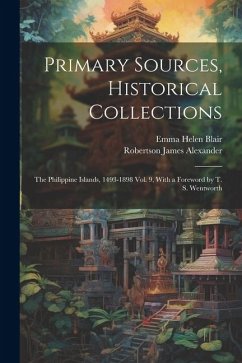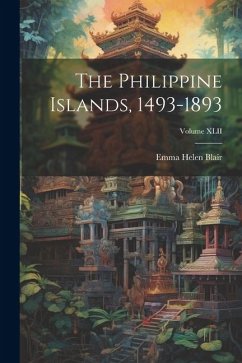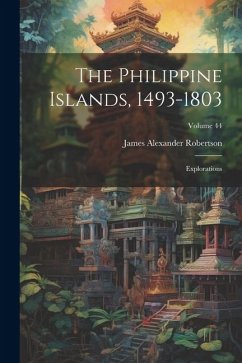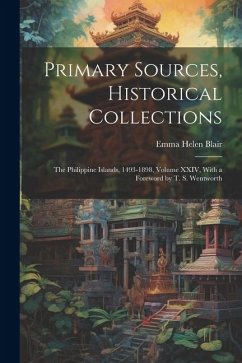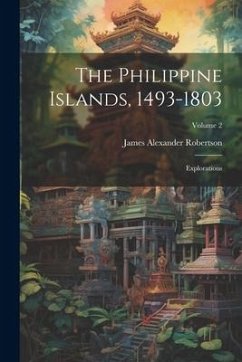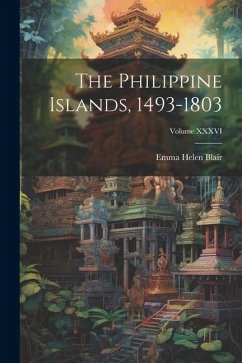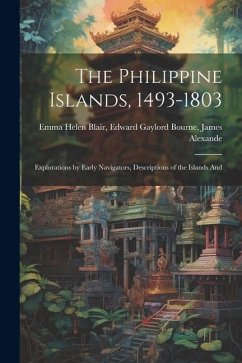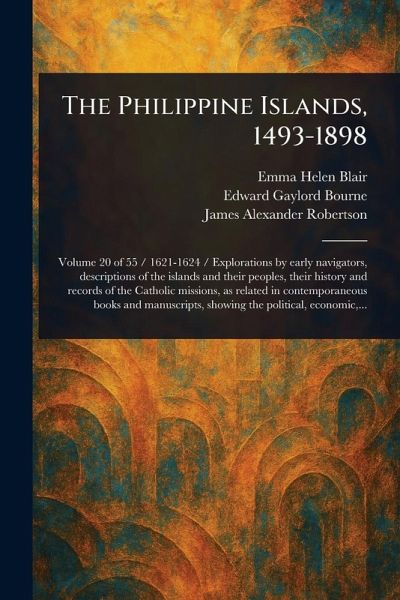
The Philippine Islands, 1493-1898
Versandkostenfrei!
Versandfertig in über 4 Wochen
18,99 €
inkl. MwSt.

PAYBACK Punkte
9 °P sammeln!
"The Philippine Islands, 1493-1898, Vol. 20, 1621-1624," meticulously compiled by Blair & Robertson, offers a compelling glimpse into the history of the Philippine Islands as a Spanish colony during the 17th century. This volume, part of a larger series of historical documents, provides invaluable insights into the period between 1621 and 1624. Delve into the world of the Philippine Islands through primary source materials, revealing the intricacies of colonial life and governance. Readers will find important details surrounding the demarcation line of Alexander VI and its impact on the region...
"The Philippine Islands, 1493-1898, Vol. 20, 1621-1624," meticulously compiled by Blair & Robertson, offers a compelling glimpse into the history of the Philippine Islands as a Spanish colony during the 17th century. This volume, part of a larger series of historical documents, provides invaluable insights into the period between 1621 and 1624. Delve into the world of the Philippine Islands through primary source materials, revealing the intricacies of colonial life and governance. Readers will find important details surrounding the demarcation line of Alexander VI and its impact on the region. This book illuminates the historical context of Southeast Asia during a pivotal time. Suitable for anyone interested in Philippine history, Spanish colonial history, or the broader context of global historical documents, this volume provides a vital resource for understanding a complex and fascinating period. This work has been selected by scholars as being culturally important, and is part of the knowledge base of civilization as we know it. This work is in the public domain in the United States of America, and possibly other nations. Within the United States, you may freely copy and distribute this work, as no entity (individual or corporate) has a copyright on the body of the work. Scholars believe, and we concur, that this work is important enough to be preserved, reproduced, and made generally available to the public. We appreciate your support of the preservation process, and thank you for being an important part of keeping this knowledge alive and relevant.








